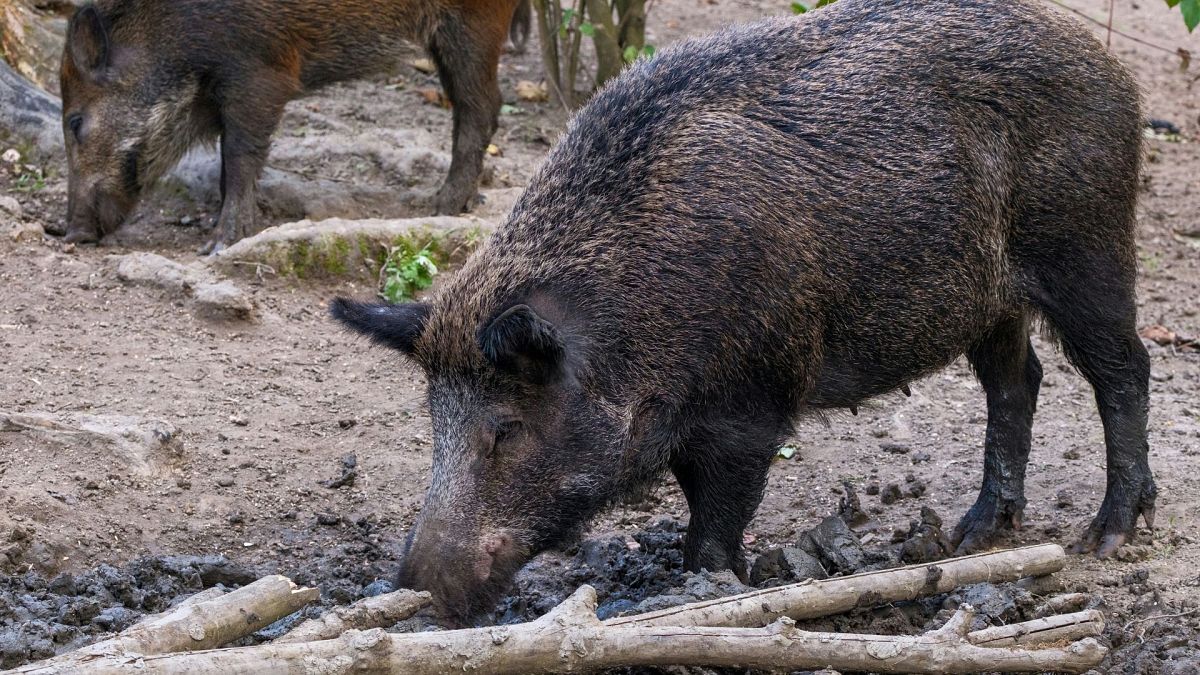Wild boars are known for their love of plowing up meadows and pastures. For some people, they are not more than a tasty roast. In France, however, one has conquered hearts.
A wild boar under threat of euthanasia by local authorities has become a celebrity in France, with support from animal rights campaigners and French actress Brigitte Bardot.
The boar, named Rillette after a slow-cooked pork spread, was rescued by Elodie Cappé, the owner of Saint-Clair equine farm in Chaource, north-central France.
Rillette was first found injured in April 2023 after she escaped from a hunting trip. Cappé cared for the boar, keeping her in a secure enclosure and providing Rillette with vaccinations.
However, Aube authorities and the French Biodiversity Agency (OFB) called for Rillette to be removed to a suitable sanctuary – or else killed due to the risk of disease and threat to public safety, according to Le Figaro.
Campaigners are calling out to #SaveRillette
In response, Cappé has refused to hand over the animal and now risks three years imprisonment and a fine of €150,000.
Hashtags in support of Rillette have spread on social media platforms, with campaigners posting #sauvezrillette (save Rillette) and #vivrensemmble (live together) trending online.
A petition launched to save the boar has gained 173,810 signatures since early December, while French music Youtuber Monsieur Seby wrote a song titled ‘La Chanson pour savuer Rillette’ (The song to save Rillette) in December 2024 for his 904,000 followers.
The French actress and singer Brigitte Bardot has also spoken out in support. In a handwritten note posted on X, Bardot called the officials wanting to kill the boar ‘assassins’.
The case of Rillette is the latest in a charged debate over the place of wild boar in Europe.
Why are wild boars an issue in Europe?
Wild boars are native to Eurasia and North Africa, with the Central European Boar subspecies dominant in Europe.
European authorities in several countries have struggled to manage their native boar populations, which has caused rising concerns over disease risk, harm to farm animals, and even attacks on human populations.
Boars can carry a variety of diseases, including African Swine Fever, a highly contagious viral disease that has killed thousands of wild and farmed animals in countries including China and Russia.
The mammals pose particular problems to farmers. With male boars in Europe weighing between 75 and 100 kg, they can break down farm fences, cause damage to fields, and kill livestock such as sheep.
An estimated €35 million of agricultural damage is carried out by wild boars every year, according to Raphaël Mathevet, an ecologist at the CEFE, the French National Centre for Scientific Research.
In 2022, the Italian government carried out a mass cull of wild boars after they entered downtown Rome to forage for food in the capital’s parks and rubbish bins. An estimated 23,000 boars live on the outskirts of Rome, according to the farmers’ association Coldiretti.
In Catanzaro, meanwhile, mayor Nicola Fiorita ordered a cull of 30 wild boars after they entered the Calabrian city in August 2023.
Wild boar attacks on humans are rare, but a number of cases have been reported.
The Colombian pop star Shakira was attacked by a pair of wild boars in Barcelona in September 2021. While the singer was not harmed, the animals took her bag and ran into nearby woods.
In Berlin, trained urban hunters have killed thousands of wild boar in the capital.
Meanwhile, in Poland, boar hunting has been authorised since January 2016 following a swine flu outbreak in 2014.
How do wild boars contribute to regional ecosystems in Europe?
However, wild boar can also contribute positively to the environment.
Native wild boars play a crucial role in maintaining biodiversity, a University of Queensland study found in 2021.
Researchers described the mammals as ‘accidental forest gardeners’ that contribute to increased tree diversity through pruning seedlings by building birthing nests in flat, dry forest sites.
By turning over the soil to search for food, they create complex microhabits that help birds and other small animals to feed from the ground.
The non-profit Rewilding Britain calls the species “the quintessential soil ecosystem engineer”, but most rewilding projects in the UK use domesticated pigs, such as the Tamworth breed, to fulfil a similar role because laws are in place to prevent the reintroduction of wild boar to the British countryside.

